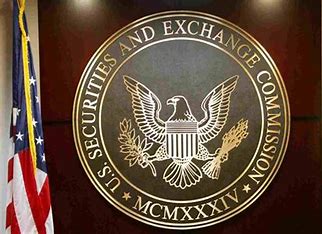


The U.S. Securities and Exchange Commission (SEC) regulates securities exchanges in the United States. The SEC’s mission is to protect investors, maintain fair, orderly, and efficient markets, and facilitate capital formation. Some of the key exchanges that fall under the SEC’s jurisdiction include:
- New York Stock Exchange (NYSE)
- Nasdaq Stock Market
- Chicago Board Options Exchange (CBOE)
- Miami International Securities Exchange (MIAX)
- BATS Global Markets
- BOX Options Exchange
- International Securities Exchange (ISE)
- Philadelphia Stock Exchange (PHLX)
- United States: The regulatory environment in the U.S. is complex, involving multiple agencies. The SEC (Securities and Exchange Commission) regulates securities, while the CFTC (Commodity Futures Trading Commission) oversees commodity-related activities. FinCEN (Financial Crimes Enforcement Network) monitors anti-money laundering (AML) compliance.
- European Union: EU member states follow a unified framework known as the Fifth Anti-Money Laundering Directive (AMLD5). Cryptocurrency exchanges and wallet providers are generally subject to AML and KYC (Know Your Customer) regulations.
- China: China has imposed strict regulations on cryptocurrency activities, banning ICOs (Initial Coin Offerings) and crypto exchanges. Mining activities have also faced scrutiny.
- Japan: Japan officially recognizes Bitcoin as legal tender and has a licensing system for cryptocurrency exchanges. The country has implemented regulations to ensure consumer protection and prevent illicit activities.
- South Korea: South Korea has implemented regulations on cryptocurrency exchanges, including KYC requirements. ICOs are banned, and the government has taken steps to curb speculative trading.
- India: India has had a fluctuating stance on cryptocurrencies. While there were concerns about a potential ban, there were also discussions about regulating them. The regulatory environment can change rapidly.
- Other Countries: Many countries have embraced cryptocurrencies, while others have imposed strict regulations or outright bans. Some countries, like Switzerland and Malta, have created favorable environments for blockchain and crypto businesses.
- Global Initiatives: There are ongoing international efforts to create a standardized approach to crypto regulations. Bodies like the Financial Action Task Force (FATF) work on global AML standards that may impact cryptocurrency regulations.
It’s important to note that the SEC does not directly regulate cryptocurrency exchanges, but it does have jurisdiction over certain aspects of the cryptocurrency industry, particularly those related to securities. For example, the SEC has taken action against initial coin offerings (ICOs) that it deemed to be securities offerings without proper registration, and it has also pursued enforcement actions against individuals and entities involved in fraudulent or deceptive practices in the cryptocurrency industry.
Commitments of Traders


The Commitments of Traders (COT) report is a weekly report released by the U.S. Commodity Futures Trading Commission (CFTC) that provides information on the positions held by various market participants in commodity futures markets. The report breaks down the positions of commercial traders, non-commercial traders, and non-reportable traders in various commodity futures contracts.
Commodity futures are contracts to buy or sell a specific commodity at a future date at a predetermined price. Futures markets are used by producers, consumers, and investors to manage risk and hedge against price fluctuations.
The COT report is used by traders and analysts to gain insights into the positioning of various market participants in the commodity futures markets. For example, if commercial traders (who are typically producers or consumers of the underlying commodity) are holding large short positions in a particular commodity futures contract, it may indicate that they are expecting prices to fall in the near future. Conversely, if non-commercial traders (who are typically speculators) are holding large long positions in a particular commodity futures contract, it may indicate that they are expecting prices to rise in the near future.
The COT report covers a wide range of commodity futures contracts, including those for agricultural products, energy products, metals, and financial instruments.
Here are the main categories of traders covered in the COT reports:
- Commercial Hedgers: These are typically businesses involved in the production, processing, or merchandising of a commodity. Commercial hedgers use the futures markets to offset the risk associated with price fluctuations in the underlying commodities. They often hold large positions.
- Large Speculators (Non-Commercial Traders):Large speculators are typically institutional investors, hedge funds, and other entities that trade futures contracts for speculative purposes rather than to hedge commercial risks. These traders can have a significant impact on short-term price movements.
- Small Speculators (Non-Reportable Positions):Small speculators are individual traders and investors who do not meet the reporting thresholds set by the CFTC. Their positions are aggregated and reported as a single category.
COT reports are published weekly and provide information on the open interest and net positions of each category of traders. Analysts and traders use these reports to gauge market sentiment and potential price trends. For example, if commercial hedgers are increasing their net long positions, it might suggest that producers or consumers are becoming more optimistic about future prices. Conversely, a large buildup of speculative positions might signal a potential market reversal.
It’s important to note that while COT reports can provide valuable insights, they are just one of many tools used in market analysis. Traders often use COT data in conjunction with other technical and fundamental indicators to make informed decisions. Additionally, COT reports are specific to U.S. futures markets and may not capture the entire global market activity for a particular commodity.
